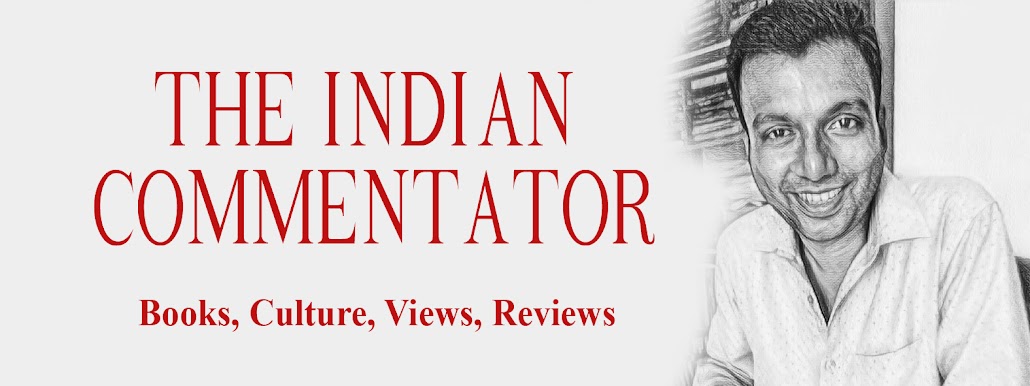“There is
a crack in everything that is how the light gets in”—Leonard Cohen.
 |
| Image Courtesy: Google |
When a
story is born angels smile. They rejoice with God, for a story is the writer’s
resurrection under the shade of words, calling for spaces so close to the signs
with endless meaning, the young writer thought. He was sitting alone nearby a
river, which was deep enough to swallow even a huge mountain. He was about to
make the most crucial decision in his life; suicide.
The sun
shone brightly in the sky. Tears dried up on his cheek. He stood up and moved,
closer to the river. His feet crushed the gravel on the edge of the cliff,
where he stood listening to the thunder of the roaring waves that leapt up to
devour the shadows the mountains around caste. Then he heard a voice—human
voice.
It could
be an animal too. He had decided how the end of his life must look like.
Therefore whatever came across was nothing worth bothering about. It was a sin,
according to his tradition. He knew he was making the angels sad, and God
unhappy. But he knew this well, too that no angels smiled at him yet, and God
hadn’t yet had shown signs of joy over his existence; he could not become a
successful writer. The young man repeated to himself: “I am right, this time.”
He did not
see any animal. He waited with a pounding heart. Then he heard the voice again.
Now it was a whisper…. “Once upon a time..,” it said.
The voice
grew bolder. He recognized the voice. It was the voice of the storyteller who
lived in the mountains. No one in his place was much interested in his stories,
but still every one found him at the market place each day, where people gathered
in the early evening. He told them his stories there. This was almost a ritual,
and would go on till late night. The young writer too, never went to listen to
his stories.
Who in
his sane mind would?
Most of
the days it were the thieves and lonely beggars who would listen to him late after
the sun set.
The young
writer wondered how the voice of the storyteller could get to so far a distance,
to the river shore. The mountain was kilometers away from the river. It might
be the wind that brought his booming voice covered in its cloak. Insane wind,
thought the young man.
Suddenly
he had a new idea; even though everything was decided, why not take a turn in
the path and come back after giving a visit to the old man, the unpopular storyteller,
in the mountain.
He took
his bicycle and drove towards the mountains. After reaching the foot of the
mountain he had to abandon his vehicle, for it could not take him over the
hazardous twists and turns of the mountain path.
It did
not take him long to reach the house, situated on the slope of the mountain. An
old man was sitting in the verandah frowning over a white paper, writing something.
The storyteller looked up from his work as he heard the footsteps of someone
approaching.
The young
man halted politely nearby. “Who are you?” The old man asked.
“I am a
failure.” The young man replied, irritated upon his own decision now to visit
the old storyteller.
“Ah, my
fate hasn’t given up yet! All failures first visit my door step, before
entering the world.” The storyteller looked frustrated, too. “Why are you
disturbing me? Can’t you see I am at work?”
“What are
you working at?” The youngster asked, curious.
“Why, I
am working at my new story.” The old man retorted without looking at the
youngster anymore.
The young
writer felt a huge lighting bolt striking his heart. Questions welled up in his
mind. Will it be rude, if he asked them? After all, the old man was a harmless
person, who always tried to entertain the people of the town. He never heard
the old man harbouring any ill will against any of the town’s people. That doesn’t matter anymore, for everything
was decided, absolutely, undeniably. He was going to die and even if he hurt
the old man, after his death he would not remember the guilt.
 |
| Image Courtesy: Google |
“Do you
know something old man; nobody in the town likes your stories. Then why are you
working on new ones? Why don’t you stop betraying yourself?” The young writer
blurted out.
As the storyteller
looked at him again in his eyes, the young man noticed a drop of tear. The
youngster suddenly regretted his question.
When the
old man spoke, his lips fluttered and his long beard played in the slow breeze.
“I have a reason for what I am doing.” He said. “I believe that when the bad
stories are all consumed the good ones will surface. And then I can harvest
them, unstopping. So I never stop creating new stories, because you never know
when you step upon a priceless gem, for which you had spent a lifetime,
searching.”
The young
writer returned without a word more. He knew absolutely that he had found his
path, this time not of death, but of an eternal life, full of possibilities.












